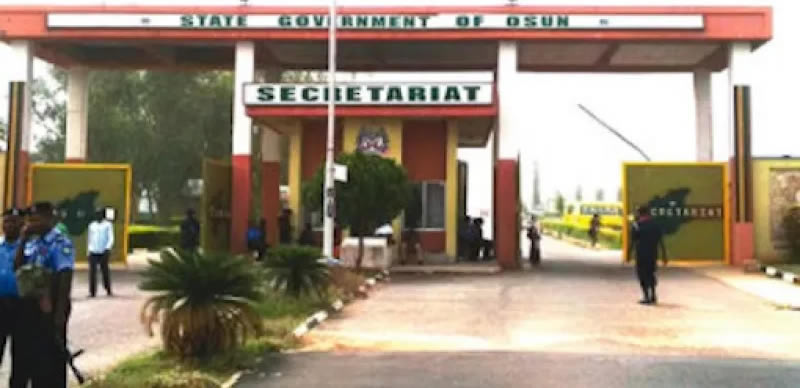The Osun State Government, in its bid to streamline its workforce and ensure fiscal responsibility, embarked on a comprehensive staff audit between July and August 2023. This exercise, conducted by an external consultant, aimed to verify the legitimacy of all civil servants and pensioners on the state’s payroll. The audit employed a multi-faceted approach, involving physical verification of personnel, biometric data capture, and the scrutiny of employee credentials. Initially centralized at the Centre for Black Culture and International Understanding in Osogbo, the audit process was later decentralized to cover all nine federal constituencies across the state to facilitate broader participation and access for all employees. This extensive effort reflects the government’s commitment to transparency and accountability in public administration.
Despite facing initial resistance from labor unions, who expressed apprehension based on past experiences with similar exercises, the government proceeded with the staff audit. Labor unions voiced concerns about potential hardships that could arise from the audit process, perhaps recalling previous instances where legitimate employees faced unintended consequences. However, the government, recognizing the importance of fiscal prudence and accurate payroll management, prioritized the completion of the audit. The government’s determination to carry out the exercise underscores the significance it places on ensuring the integrity of its workforce and the responsible management of public funds.
The preliminary findings of the staff audit have ignited a controversy, alleging the presence of a substantial number of “ghost workers” within the state’s civil service. The audit report highlighted specific instances within various ministries, departments, and agencies where individuals were allegedly receiving salaries without providing any evidence of active service. One of the most startling revelations emerged from the Osun State College of Technology, Esa-Oke, where an astounding 280 out of a total staff of just over 300 were flagged as potential ghost workers. This figure encompassed even high-ranking officials, including the Rector, Deputy Rector, Registrar, and Bursar, raising serious questions about the institution’s internal controls and oversight mechanisms.
The audit’s findings extended to the Osun State University, Osogbo, where approximately 257 staff members, including over 100 professors, were identified as either non-existent or lacking proper documentation. The inclusion of such a large number of academic staff in the list of potential ghost workers further intensifies the controversy surrounding the audit’s findings. The sheer number of alleged ghost workers identified in these institutions casts a shadow over the integrity of the state’s payroll system and raises concerns about the potential misappropriation of public funds. These preliminary findings underscore the need for a thorough investigation to determine the veracity of the claims and to identify those responsible for any irregularities.
The Nigerian Labour Congress (NLC), Osun State chapter, has vehemently refuted the audit’s findings, categorically denying the existence of ghost workers within the state’s civil service. Christopher Arapasopo, the Osun State Chairman of the NLC, dismissed the audit’s claims, asserting that the state is currently free of ghost workers. He emphasized that the process is still ongoing, suggesting that the preliminary findings may not reflect the complete picture. The NLC’s strong denial of the audit’s findings highlights the contentious nature of the issue and underscores the need for a transparent and credible process to verify the audit’s claims. The differing perspectives between the government’s audit findings and the NLC’s assertions create a complex situation that requires careful consideration and further investigation.
Despite repeated attempts, obtaining an official statement from the Osun State government regarding the audit’s findings proved unsuccessful. Calls to the Head of Service, Mr. Ayanleye Aina, went unanswered, while a text message inquiry only elicited a brief acknowledgment of the request. This lack of official response from the government adds to the ambiguity surrounding the issue. The government’s silence leaves many questions unanswered, fueling speculation and hindering a comprehensive understanding of the situation. The absence of a clear and official statement from the government is a crucial gap in the narrative, highlighting the need for greater transparency and communication to address public concerns and build trust. A thorough investigation and subsequent public disclosure of the findings will be essential to resolve the discrepancies and ensure accountability.














